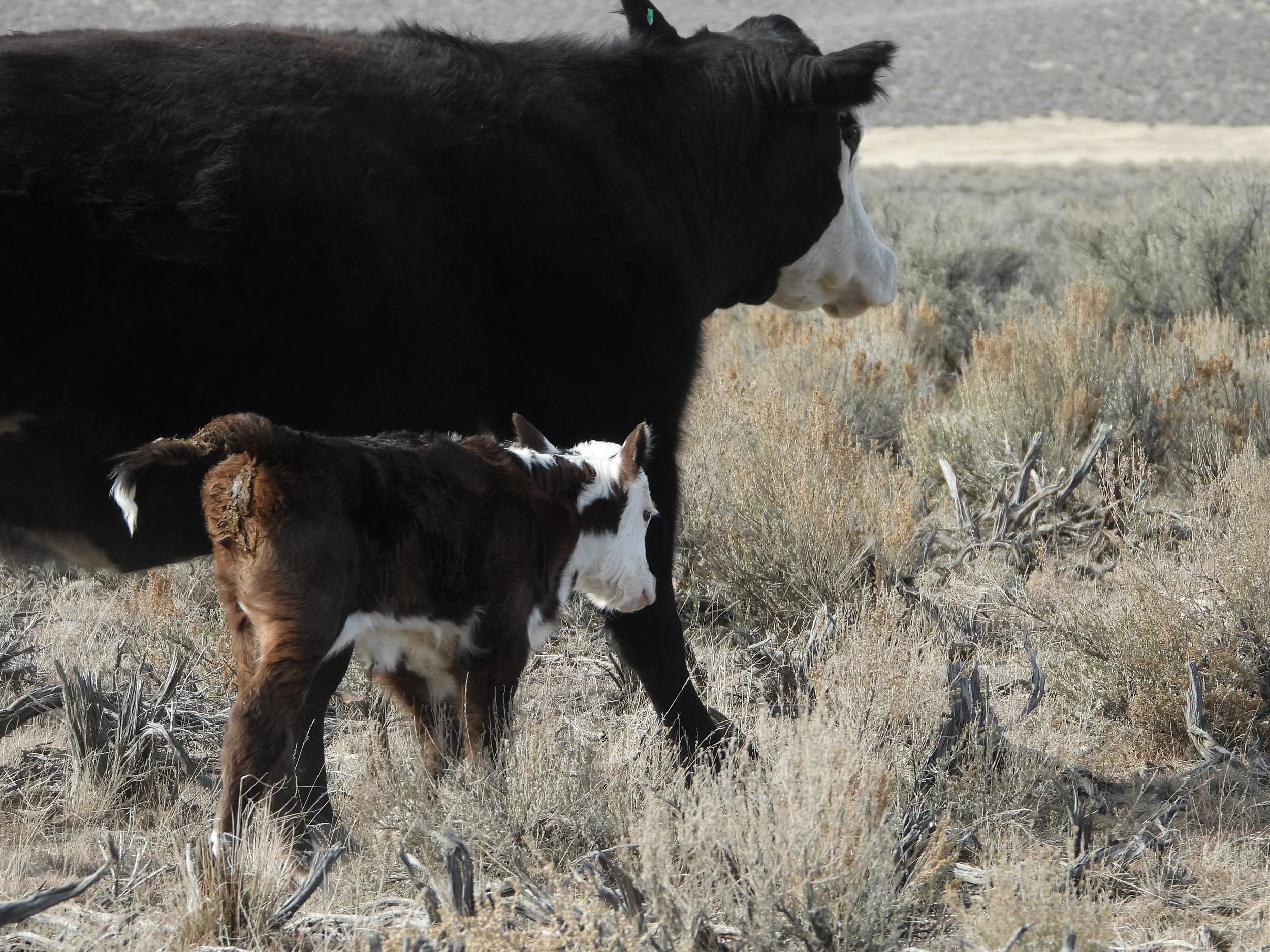
Public lands ranching has the most widespread and severe impact on horse and burro habitat and long term sustainability.
The Wild Free-Roaming Horses and Burros Act was enacted to protect these animals and their habitat — including provisions to remove unauthorized livestock that compete for forage and water. Yet today, wild horses are routinely rounded up as “excess” while grazing livestock remain, highlighting how BLM management often responds more to ranching pressures than the original intent of the law.
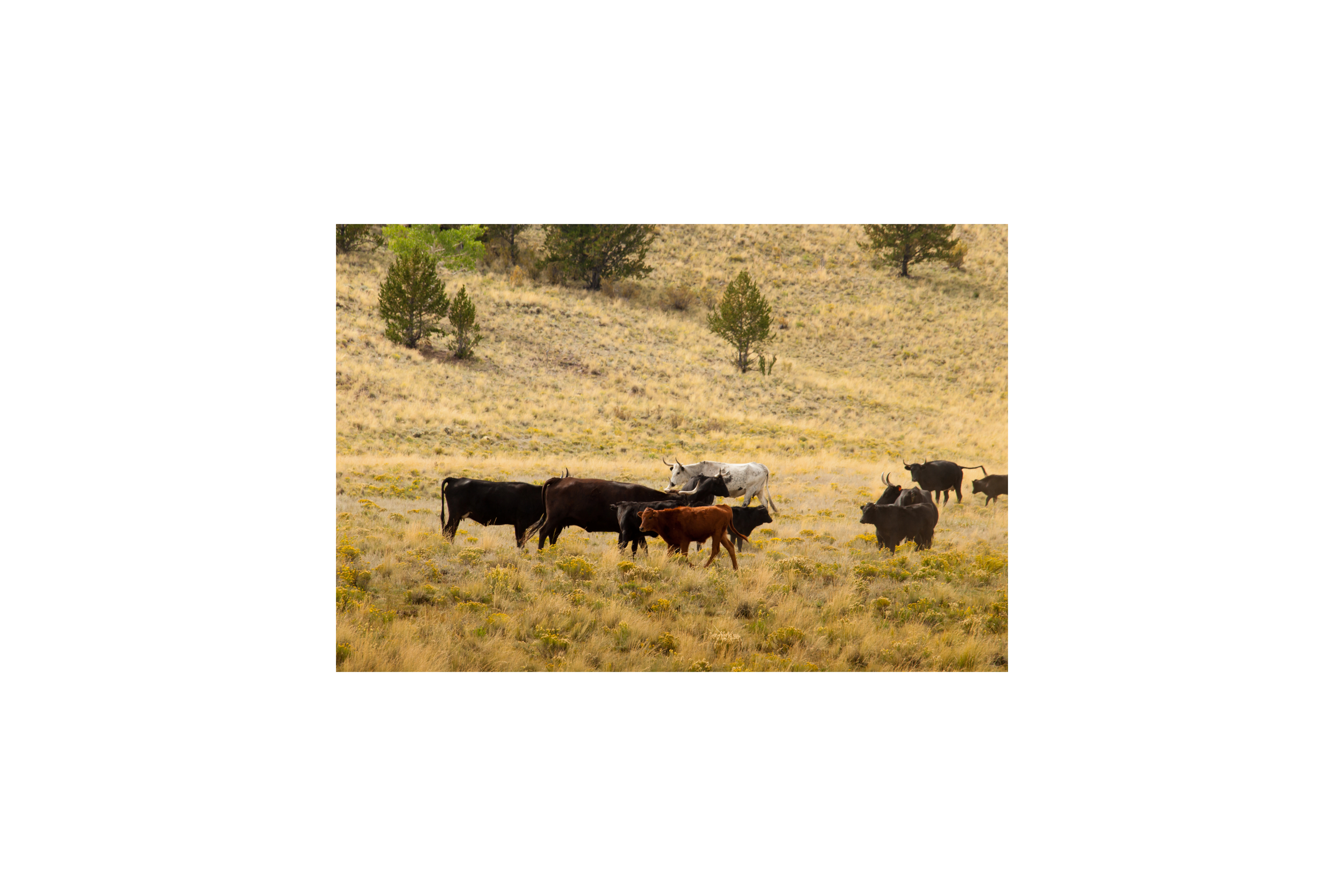
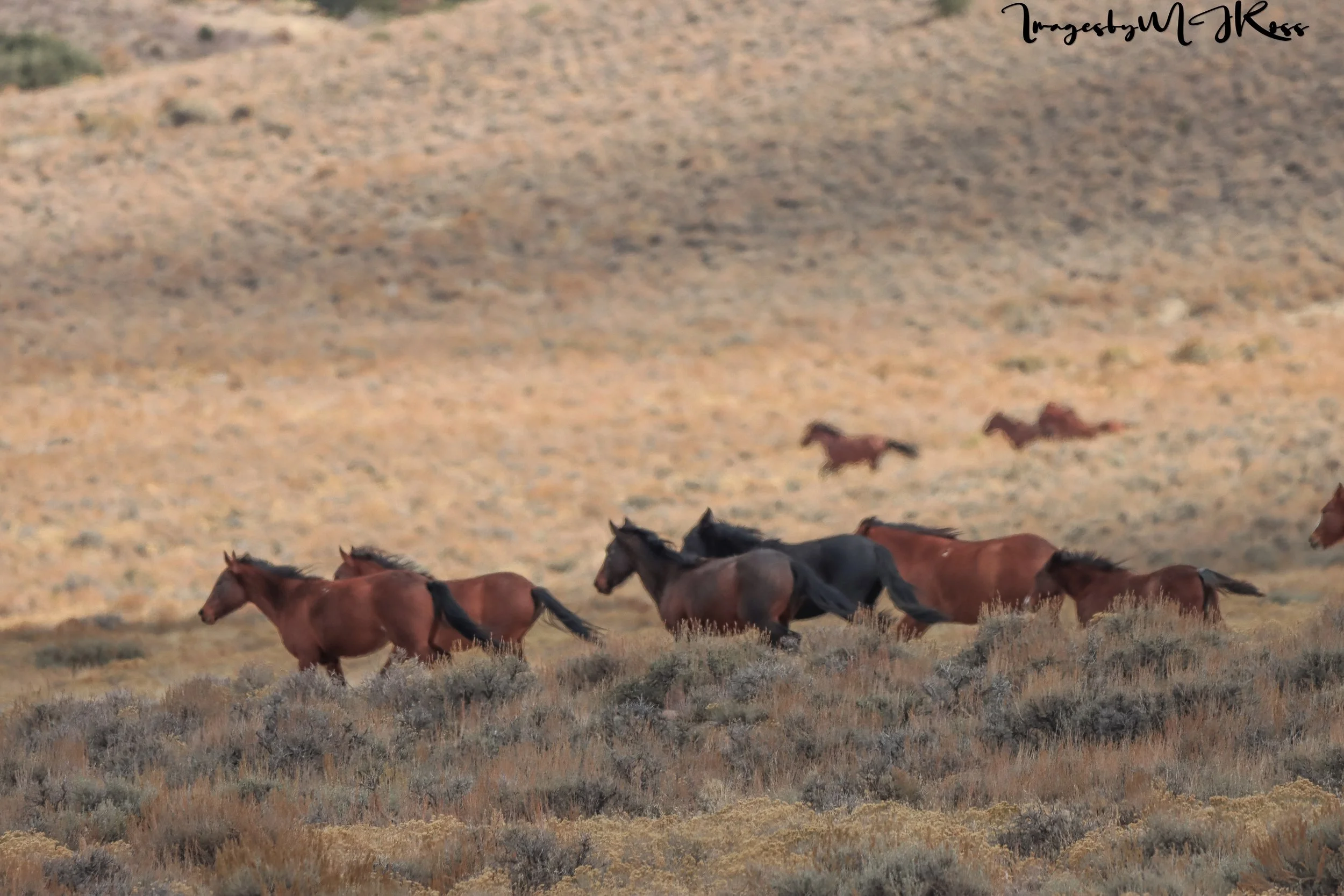
Congressional Bills H.R. 4323 and H.R. 6938 Signed Into Law
Congress has officially passed, and the President has signed into law, H.R. 4323 and H.R. 6938, collectively known as the Interior and Environment Appropriations Act, 2026. This legislation provides consolidated funding for federal agencies within the Department of the Interior for the fiscal year ending September 30, 2026.
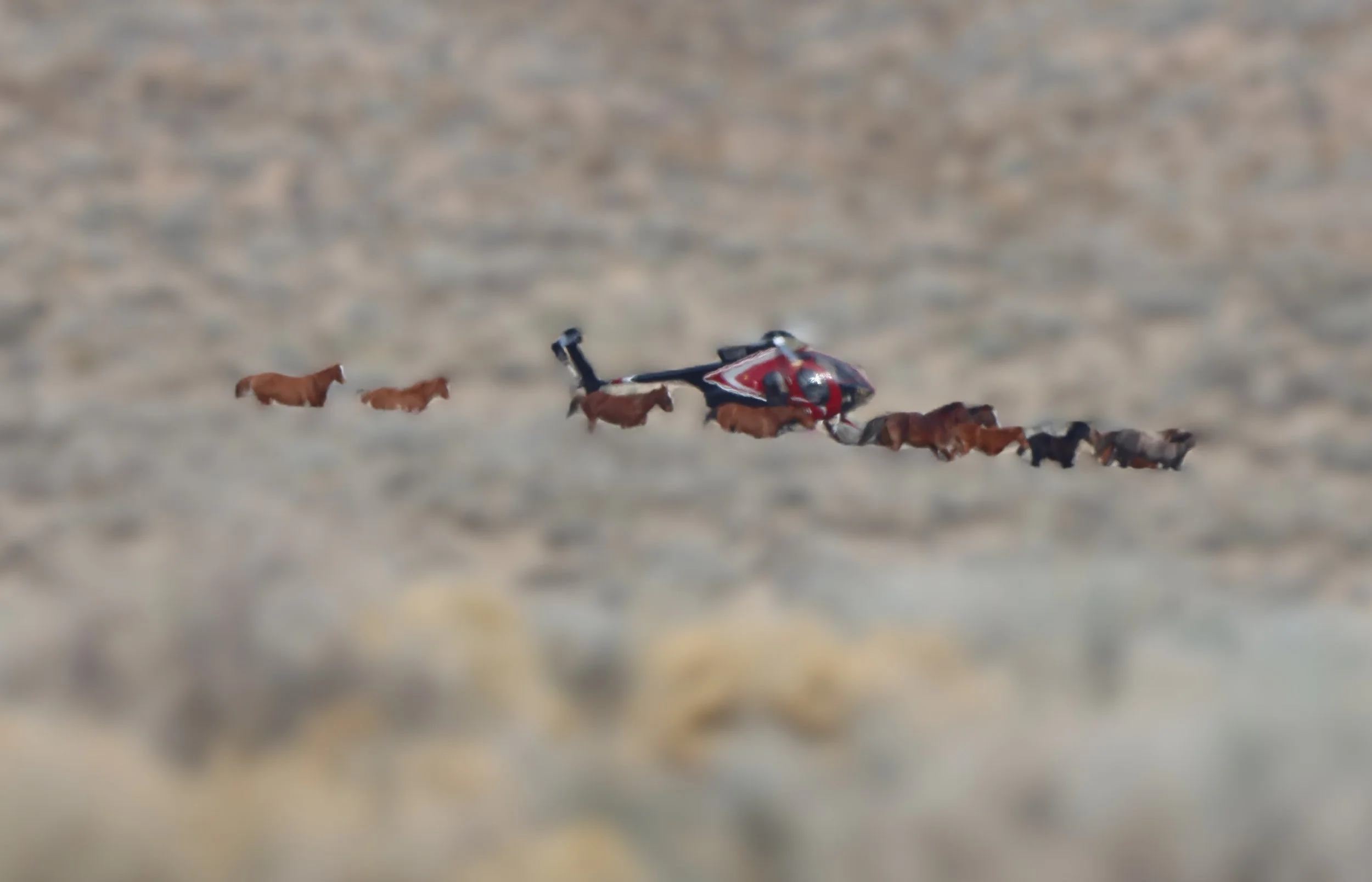
Llimited depth perception in Wild Horses and the effects during roundups
Horses have limited binocular (forward-facing) vision and rely on head movement and reduced speed to accurately judge depth and terrain.
During helicopter gathers, wild horses are driven at sustained speeds across unfamiliar landscapes and are unable to stop, lower their heads, or visually reassess obstacles.
Under these conditions, reduced depth assessment increases the risk of misjudging terrain features such as washes, drop-offs, fencing, and trap wings, which can result in falls, collisions, and musculoskeletal injuries.
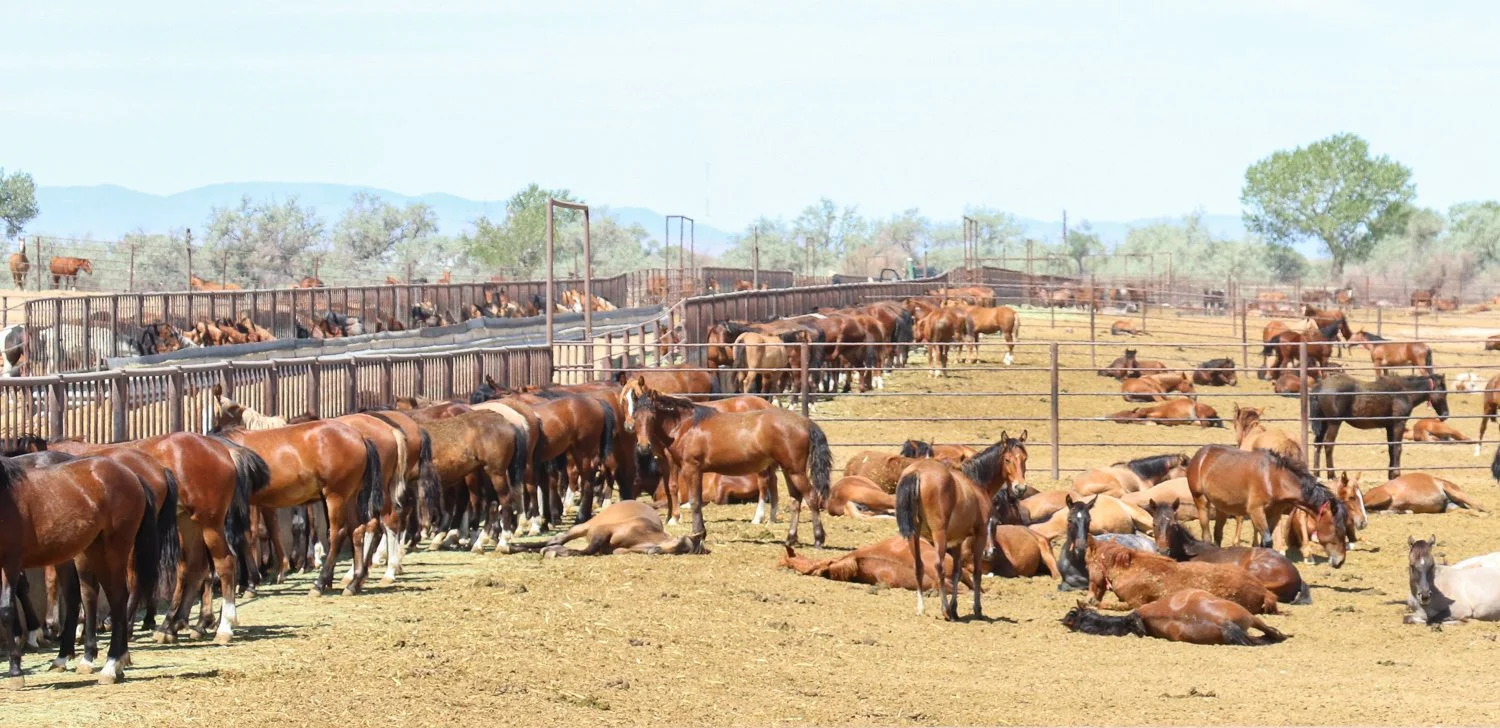
Ninth Circuit approves Nevada horse corral amid claims of inhumane treatment
Ninth Circuit approves Nevada horse corral amid claims of inhumane treatment
A three-judge panel of the U.S. Court of Appeals for the Ninth Circuit upheld a lower-court decision allowing the Bureau of Land Management (BLM) to continue operating and funding the Winnemucca Off-Range Corral near Winnemucca/Paradise Valley, Nevada,

How training programs within the BLM structure would benifit the adopters, the horses and the taxpayers.
The Northern Nevada Correctional Facility is one of the most successful Wild Horse gentling and adoption programs in the country. The NNCC Wild Horse program will survive through FY2026 with reduced funding and reliance from onetime funding through the state of Nevada. The facility will be maintained but no long term protection despite the proven sucess in reduction of costs for long term hold facilities and saving wild horses lives and improving the chances for those inmates that train the horses a higher sucess rate when leaving the prision system.
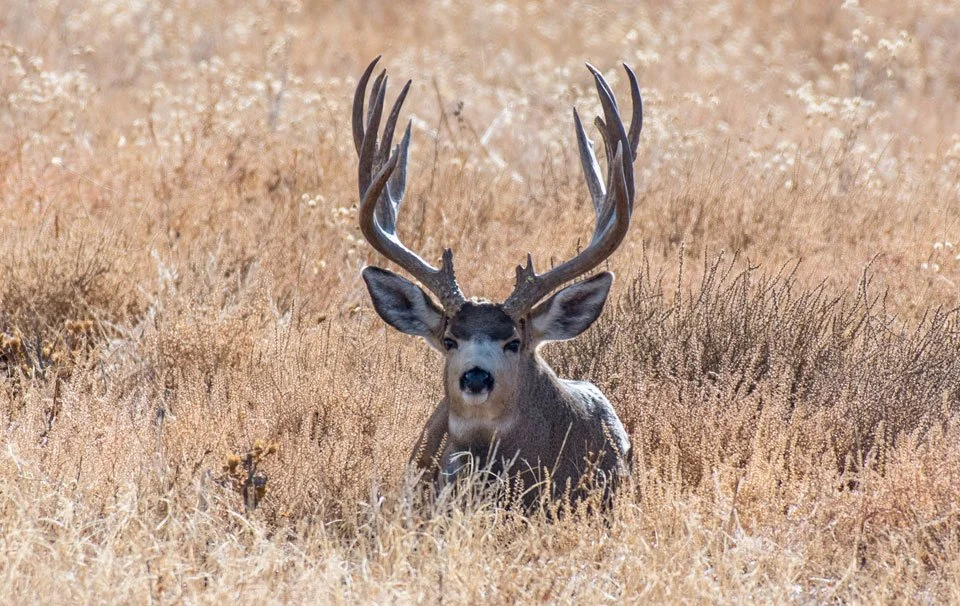
Public lands, Private Profits: How Trophy Hunting and BLM Grazing Collide
Their value is cultural, ecological, and public not financial. In contrast, livestock grazing, hunting tags, and private trophy hunts all generate revenue streams tied to land use decisions.
As a result:
* Wild horses are targeted for removal
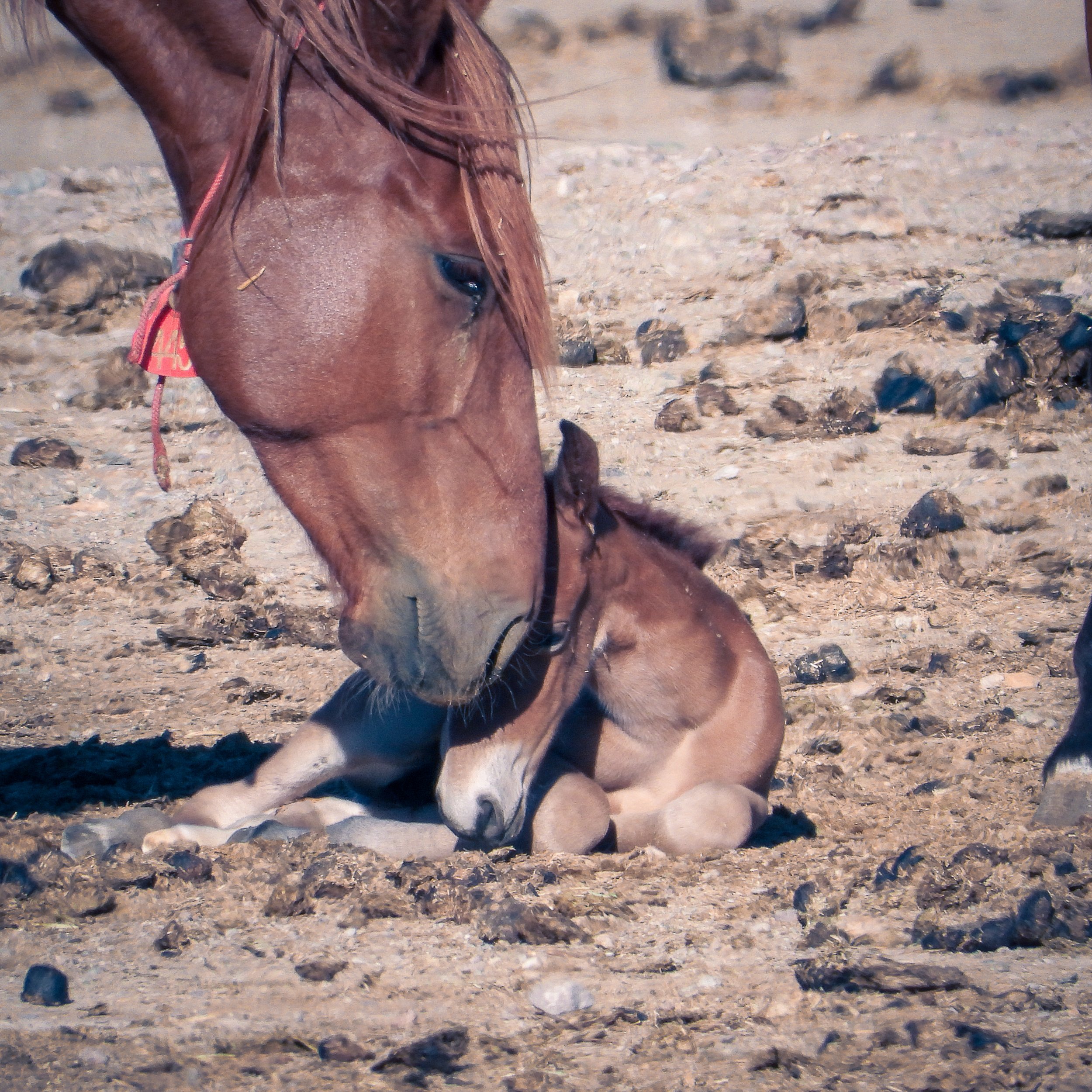
The Wild Horse and Burro Comprehensive Animal Welfare Program (PIM 2021-002): A Promise Unfulfilled
Until management practices change, until transparency is enforced, and until deaths after roundups are fully counted and addressed, the Comprehensive Animal Welfare Program remains a promise unfulfilled.
Wild horses and burros deserve more than policy memos.
They deserve to live free, protected, and respected on the lands that are legally theirs.
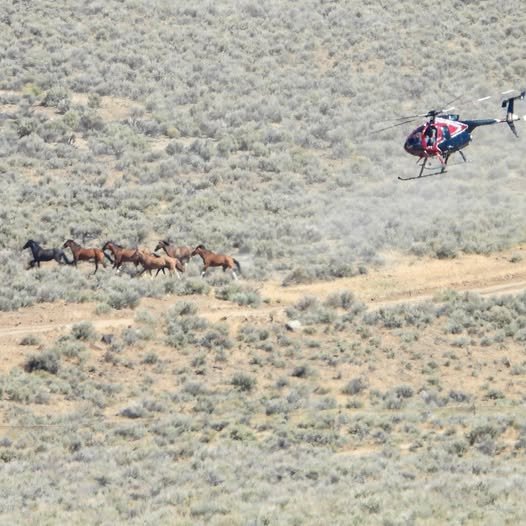
BlueWing roundup and the Failure of Animal Welfare Oversight- we all remember this roundup well.
The 2024 Blue Wing roundup became the deadliest of the year for U.S. wild horse and burro roundups. A total of 1,665 animals were removed. Forty-two deaths were officially reported during the operation, attributed to traumatic injuries such as broken necks and blunt force trauma, as well as euthanasia for pre-existing conditions. After shipment to short-term holding facilities, another 144 animals died.
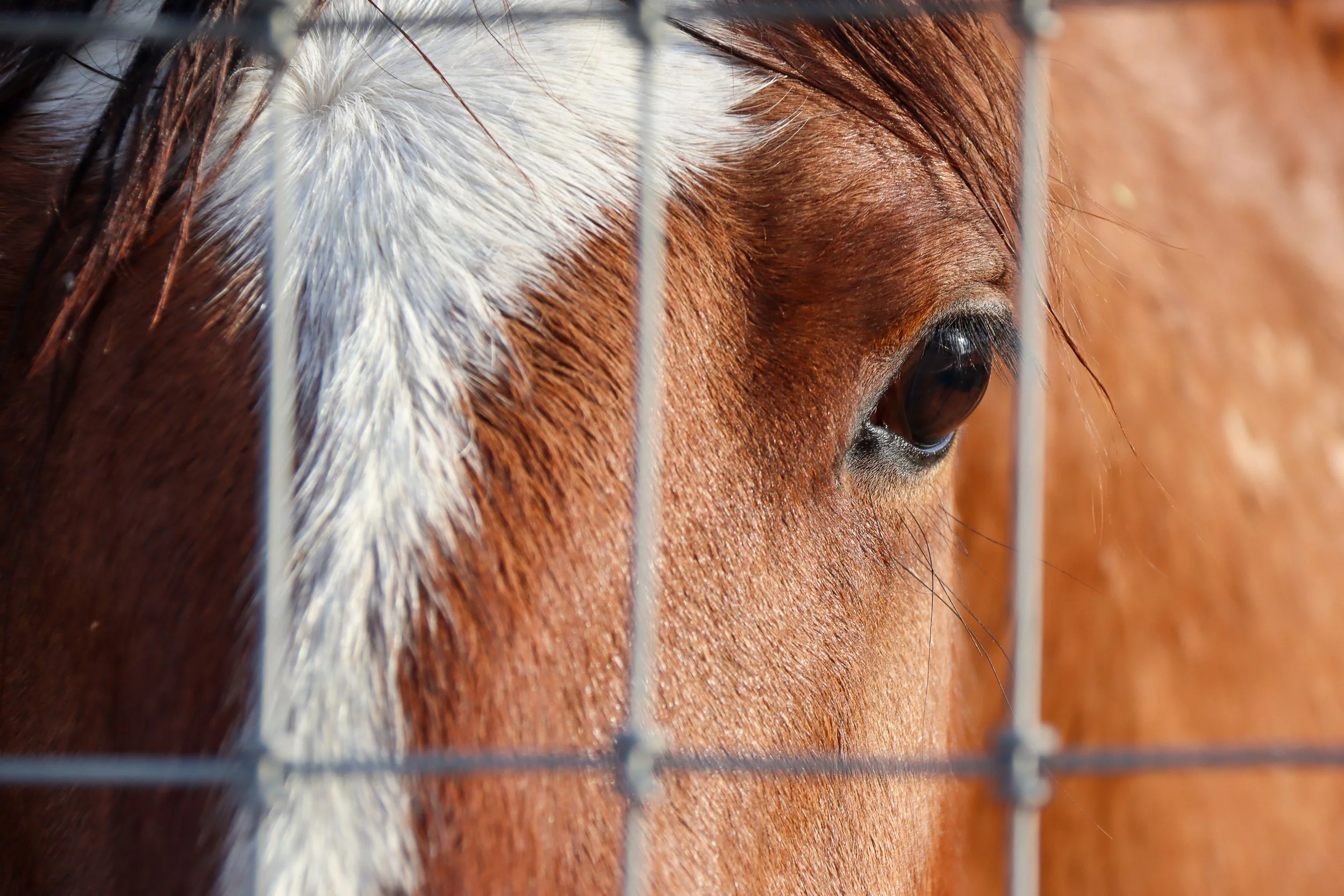
So What Is the Real Mortality Rate? The real death toll of a roundup is not just what happens at the trap. It’s everything that happens because of the trap.
When all deaths connected to the roundup include trap-site, short-term holding, long-term holding, and surgical complications the mortality rate becomes significantly higher.
The BLM knows this.
But they only publicize the number that makes the operation look humane.
The Public Deserves the Whole Truth
Wild horses are not dying because they are sick, weak, or “starving on the range.”
They are dying because they are being chased, stressed, injured, and torn from the environment their bodies evolved to survive in.
It’s everything that happens because of the trap
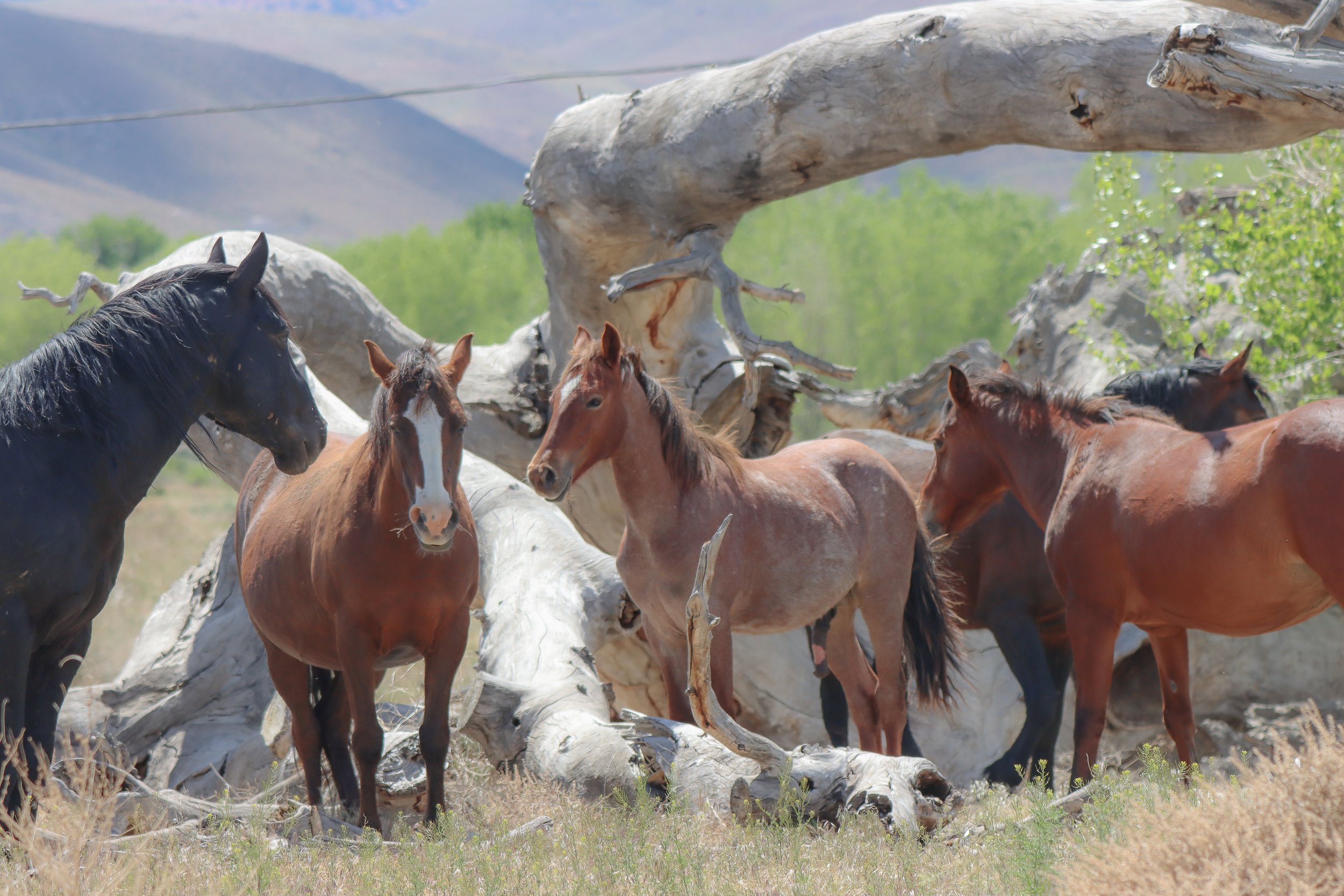
Reclassify Wild Horses as a Native Species
Wild horses have lived on the North American landscape far longer than many of the animals we legally recognize as “native.” Science confirms that the modern horse evolved here—on this continent—before becoming extinct during the Pleistocene and returning with the Spanish. Their DNA links directly to the prehistoric horses that once roamed the same basins, valleys, and mountain ranges they occupy today.

Giving Tuesday Wild Horses Lives Matter
For a long time, I was doing this work under another organization, making an impact on their behalf. But now, I’m asking for the opportunity to make that same impact—and more—through my own organization, Wild Horses Lives Matter.
I want the chance to change outcomes, to demand transparency, and to push for real accountability.
What makes Wild Horses Lives Matter different from other organizations is simple: We show up. We answer messages. We respond to the public. We educate people who are trying to understand what’s happening. We provide photos, videos, and firsthand documentation when you ask for it.
We don’t focus on just one part of the mustang’s journey. We are committed to them every step of the way—from the range, to the trap sites, to holding, to adoption and homing, and even to the kill pens where too many end up when the system fails them.
Wild Horses Lives Matter has been here for the mustangs and for the people who care about them. Join us in this fight.
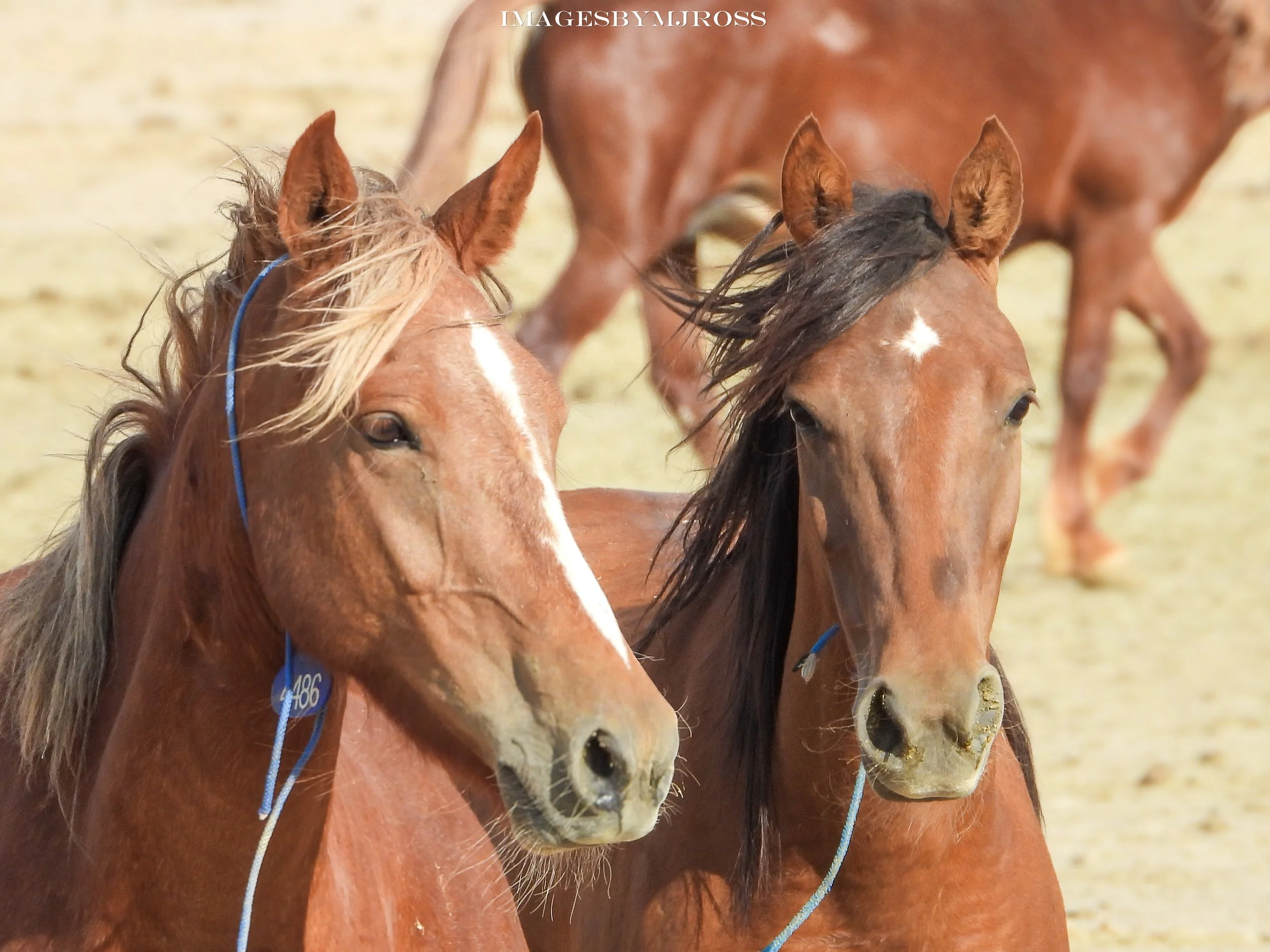
BLM’s Broken Promise: How Decades of Mismanagement Have Failed America’s Wild Mustangs
For decades, concerns about the management of America’s wild horses and burros have grown louder, more urgent, and more heartbreaking. The Bureau of Land Management tasked with protecting these animals under the 1971 Wild Free-Roaming Horses and Burros Act has presided over a system that many agencies, lawmakers, and experts have acknowledged is deeply broken.
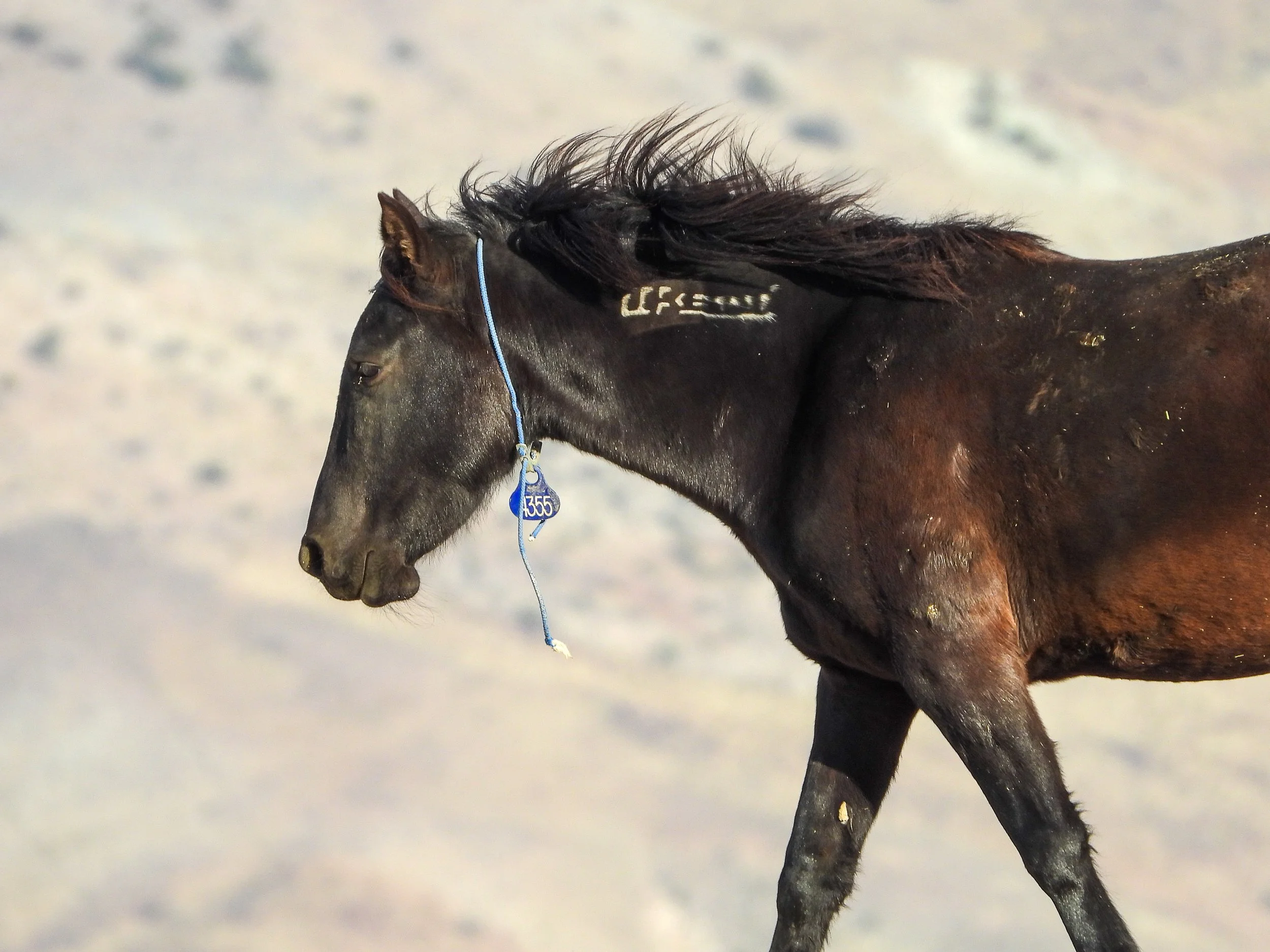
From Wild to Wanted. Not Wild to Wasted
Wild Mustangs are failing in the adoption system because their transition off the range is ignored. New Home Syndrome is real, and without proper education and support, these horses are pushed into a cycle that ends in kill pens. We can stop this by demanding responsible management and protecting the welfare of every Mustang from range to home.
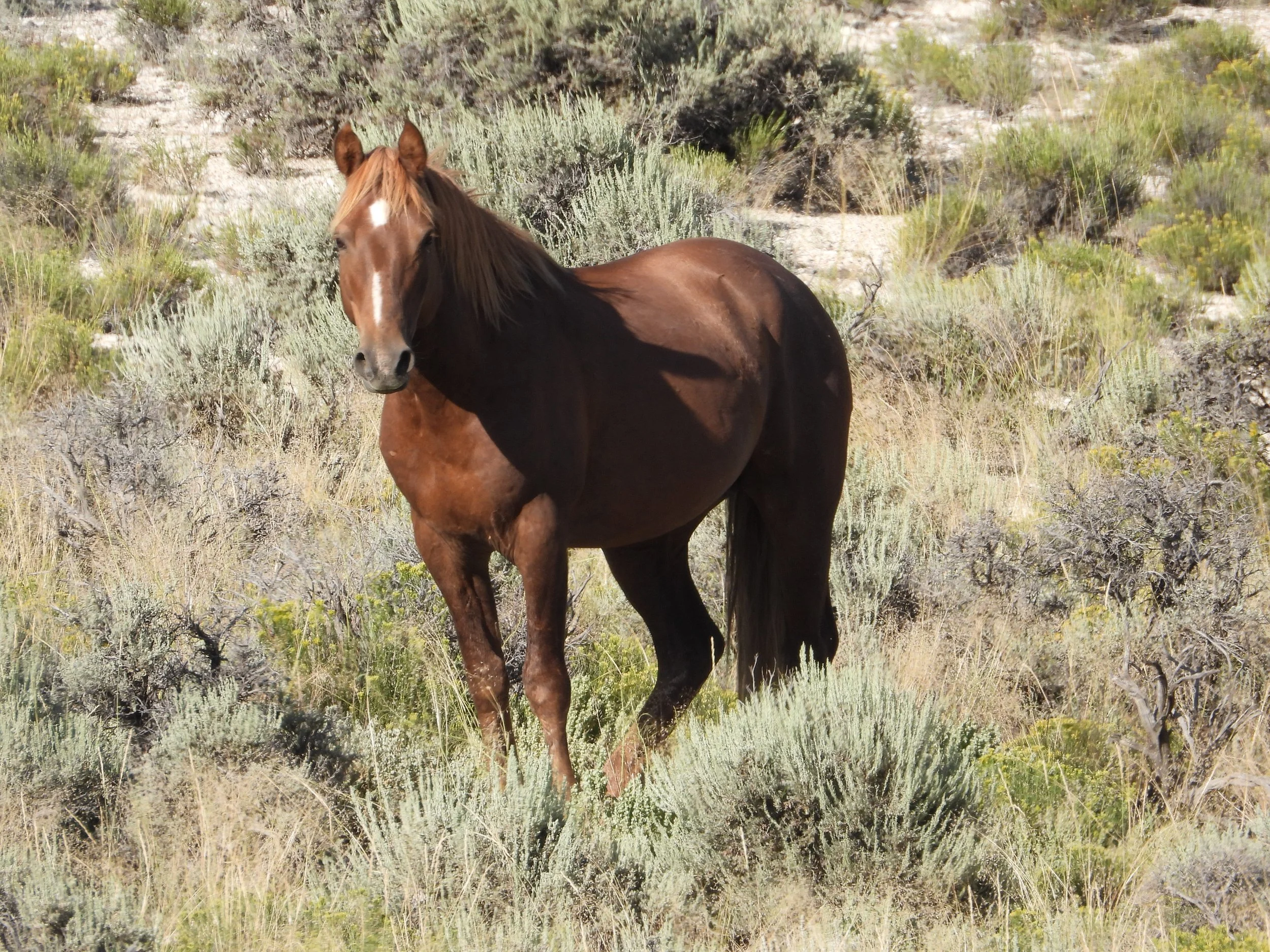
Flipping the preference to Wild Horses instead of cattle- buy a base property
A base property is a game changer — it gives your efforts real value and helps move livestock off the land so Wild Horses can return to the range where they belong

Wild Horses Lives Matter
Learn more about Wild Horses Lives Matter
The organization remains committed to transparency, efficiency, and purpose-driven work. Each dollar entrusted to Wild Horses Lives Matter directly contributes to protecting the freedom, dignity, and survival of America’s wild horses

Wild Horse Diets are Adaptable
A sweeping University of Wyoming study of wild horses on federal lands across seven Western states has found that the animals have a high ability to gain nutrition from a variety of plants and, by so doing, maintain good body condition, even in winter.

BLM Winnemucca Wild Horse Holding Facility. (100 Acre w/ 4,000 Horses) FOA returns to court for appeals
In legal filings and court rulings tied to a 2022 environmental challenge, the Ninth Circuit noted that the Winnemucca Off-Range Corrals operate under the same conditions and standards as other BLM holding facilities nationwide.

What Happens to the Wild Horses Wearing USGS Collars if Federal Funding is Cut?
When Americans think of wild horses, we picture untamed freedom — not government-issued GPS collars and data transmitters strapped around their necks. But hundreds of mustangs across the West currently carry those collars, part of U.S. Geological Survey (USGS) studies designed to track their movements, survival, and range use.

Beyond the Blame: Human Activities Ravaging Nevada's Public Lands While Wild Horses Take the Fall. Does anyone consider noise pollution being part of the blame for the wildlife declining numbers
Nevada leads the nation in mining, with over 180,000 active claims on BLM lands, primarily for gold and lithium. Projects like the proposed Rhyolite Ridge lithium mine and others approved in 2024 threaten biodiversity by degrading water sources, fragmenting habitats, and leaving toxic legacies that persist for millennia. Groundwater drawdown from mining can drop levels by hundreds of feet, drying up springs vital for wildlife and horses alike. Abandoned mines pose physical hazards and pollute waterways, harming ecosystems far beyond horse grazing impacts. Yet, while horses are rounded up for "overpopulation," mining expands, encroaching on HMAs and cultural sites.
